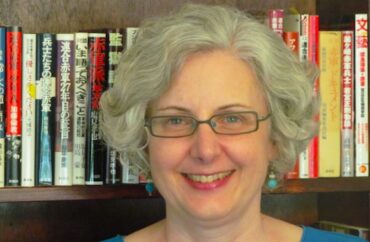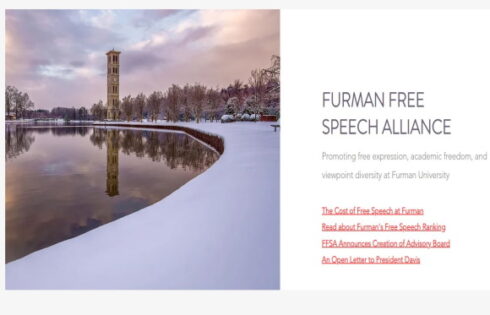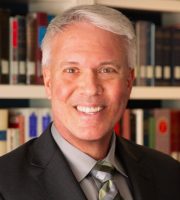
‘Texts that actually just reify whiteness’
A professor of English at Vanderbilt University recently gave a talk about how the genre of climate fiction, or “cli-fi,” has a problem with “its intersection [of] race and genre.”
Teresa Goddu (pictured), whose advocacy led to the creation of Vanderbilt’s Environmental and Sustainability Studies minor, told an audience at the Novel Seminar Series that climate fiction in the United States “depicts the climate crisis as a whiteness crisis,” The Hustler reports.
Such stories “often represent white, mostly privileged characters in communities becoming destabilized if not undone by climate catastrophe,” Goddu said. “Climate punctures the bubble of safety and security that cocoons the white psyche.”
Goddu added that she is “tired” of the focus on whiteness in climate stories, or “texts that actually just reify whiteness.” As a result, she’s working on “encompassing slave and neo-slave narratives” into such tales to “expand the canon.”
“I really think a lot of climate fiction is being written, but not recognized as such, especially African American literature,” Goddu said. “I want to expand […] what is considered climate fiction and [redefine] what we are actually reading and paying attention to.”
Looking ahead, Goddu said she hopes her work will expand the genre and leverage optimism, satire and new tropes to innovate the body of work and reimagine a better, more sustainable future.
“I am more interested in reading stories that reimagine possible futures or teach me about the structures, historically and currently, that I live within,” Goddu said. “I don’t like literature as policy statements. I don’t like literature to be so instrumental.”
MORE: Study: Climate change deniers more likely to hold racist views
According to her faculty bio, Goddu’s research deals with “slavery and antislavery, race and American culture [and] genre studies.” In a 2021 interview, Goddu said she began “noticing how the antislavery movement was being invoked by climate activists as a model.”
“This led me to consider what social change my own moment demanded of me and how I might bring my gifts—as administrator, teacher, and writer—to bear on the issue,” she said. “It made sense to connect my long-standing concern with racial justice to the issue of climate justice and my interest in how literature can affect social change to the climate crisis.”
Seven years ago another Vanderbilt academic, Ed Rubin, offered a pair of courses on cli-fi: “Visions of the Future in Cli-Fi” and “Climate Change Literature: A New Fictional Genre about a Real Problem.” Many of the titles on his reading list (“Earth Abides,” “The Postman,” “Do Androids Dream of Electric Sheep?”) are Euro/white-centric.
MORE: Professors argue capitalism abuses poor minorities through pollution
IMAGE: Vanderbilt U.
Like The College Fix on Facebook / Follow us on Twitter





Please join the conversation about our stories on Facebook, Twitter, Instagram, Reddit, MeWe, Rumble, Gab, Minds and Gettr.